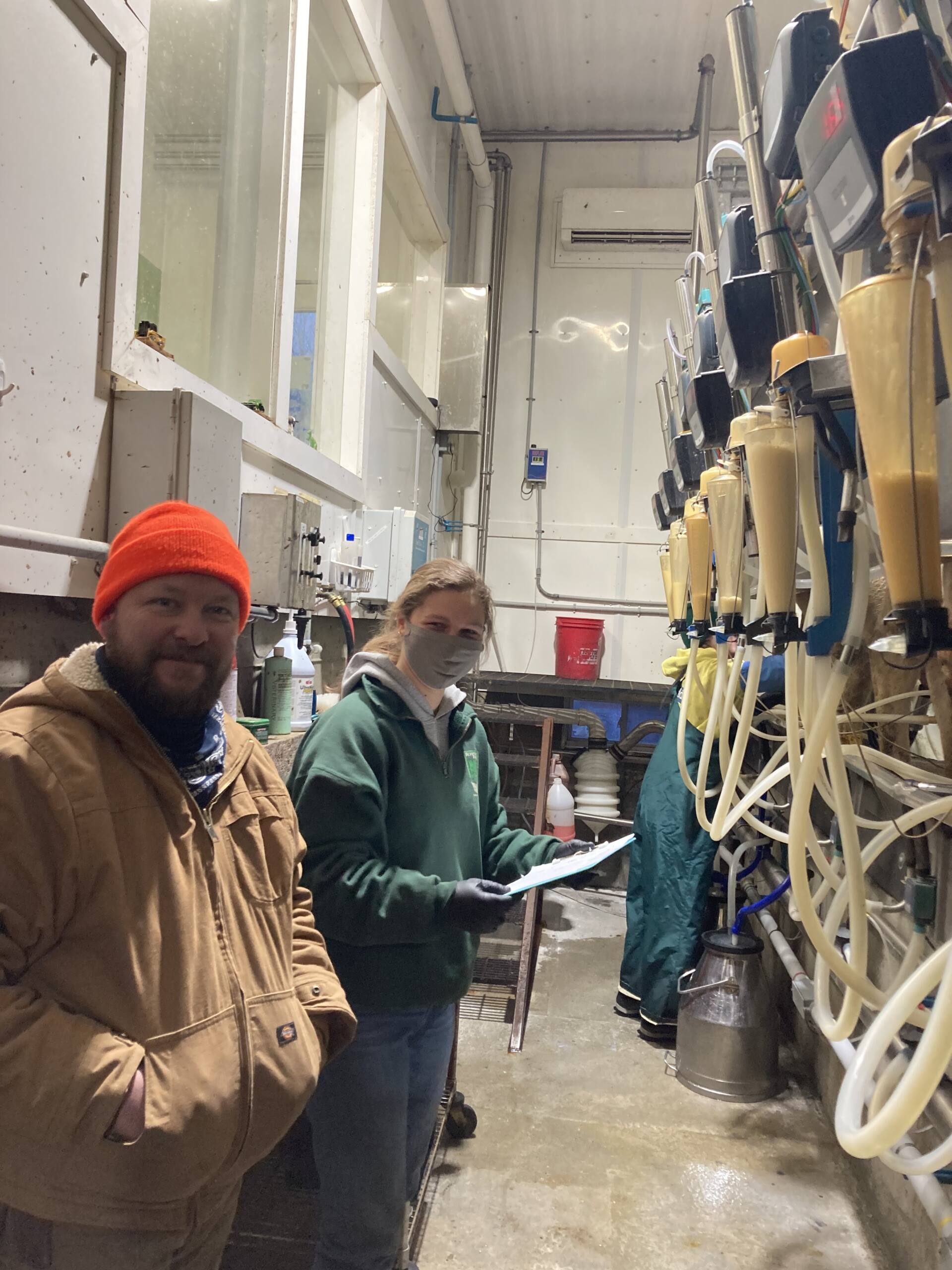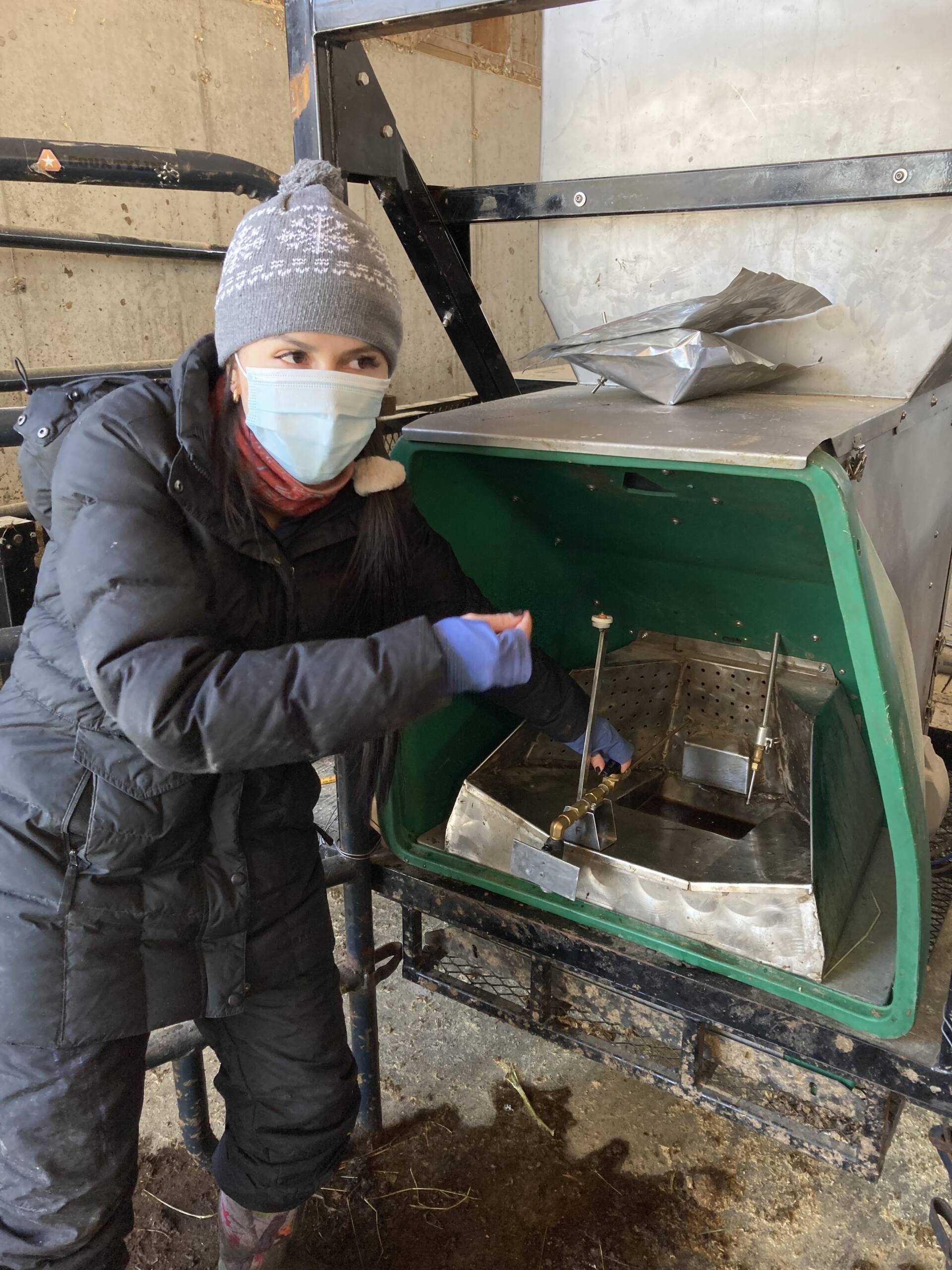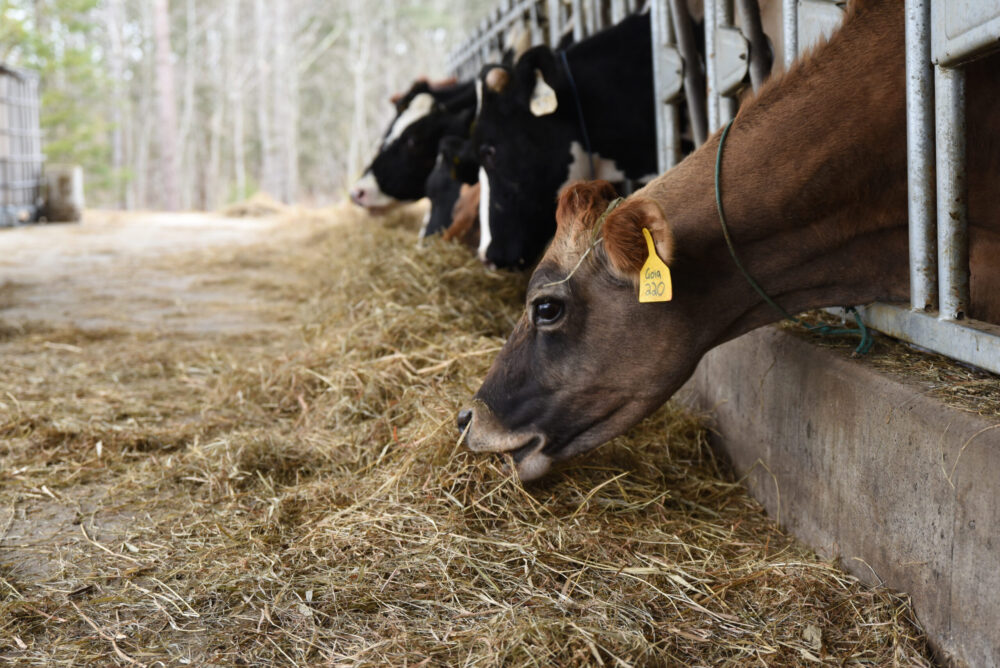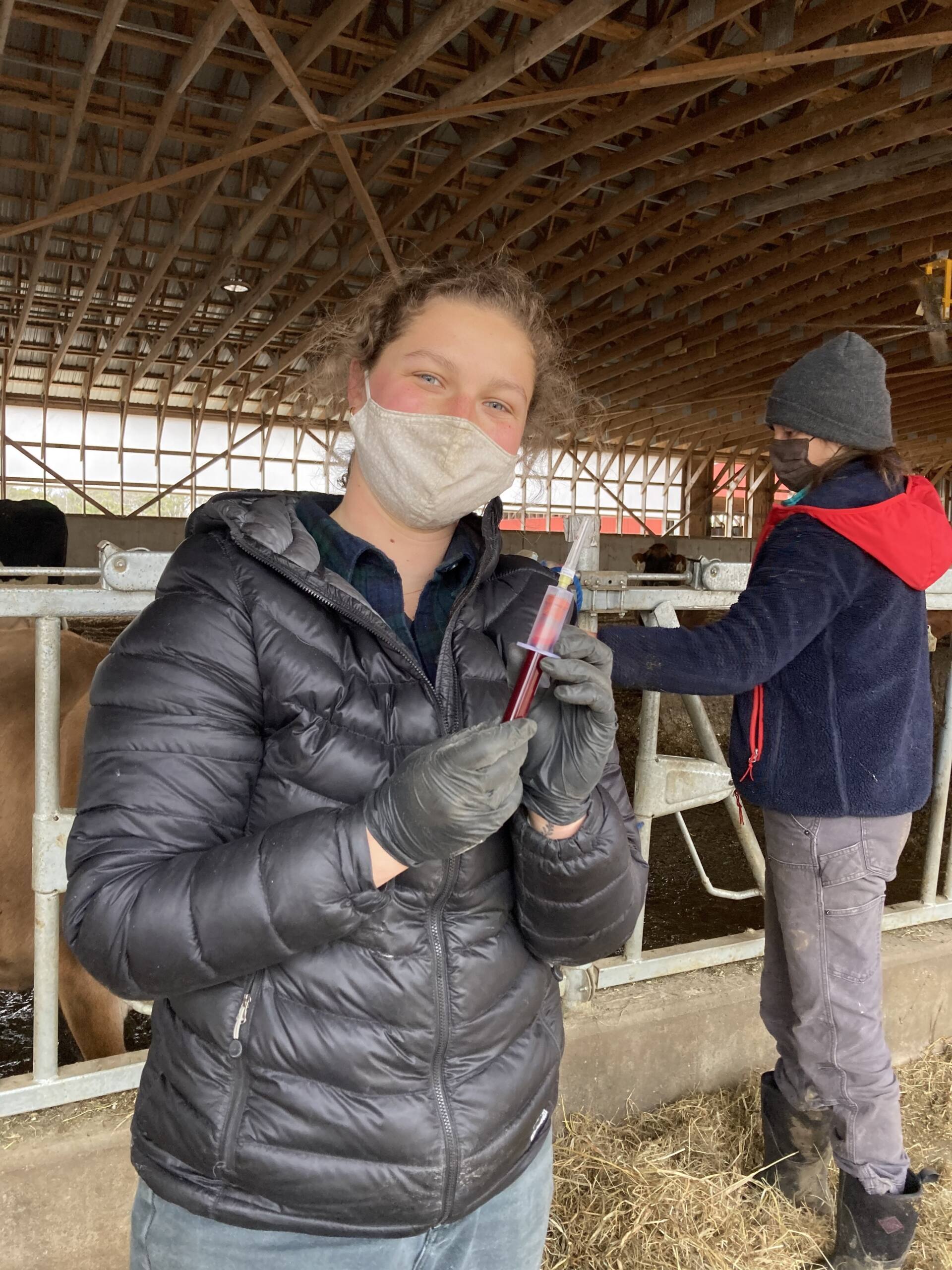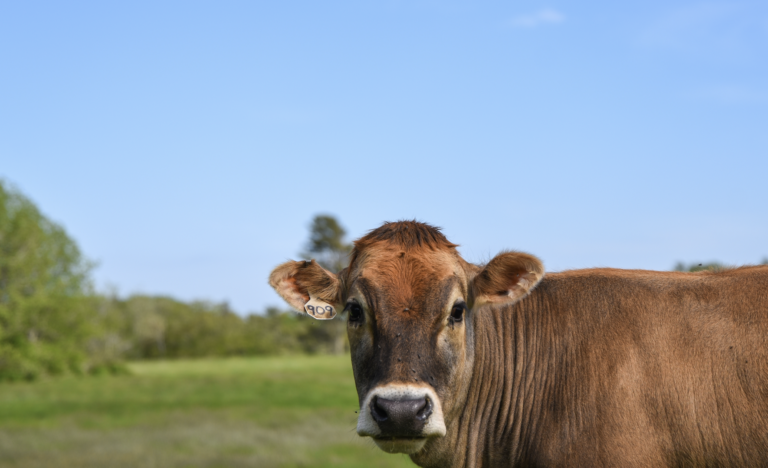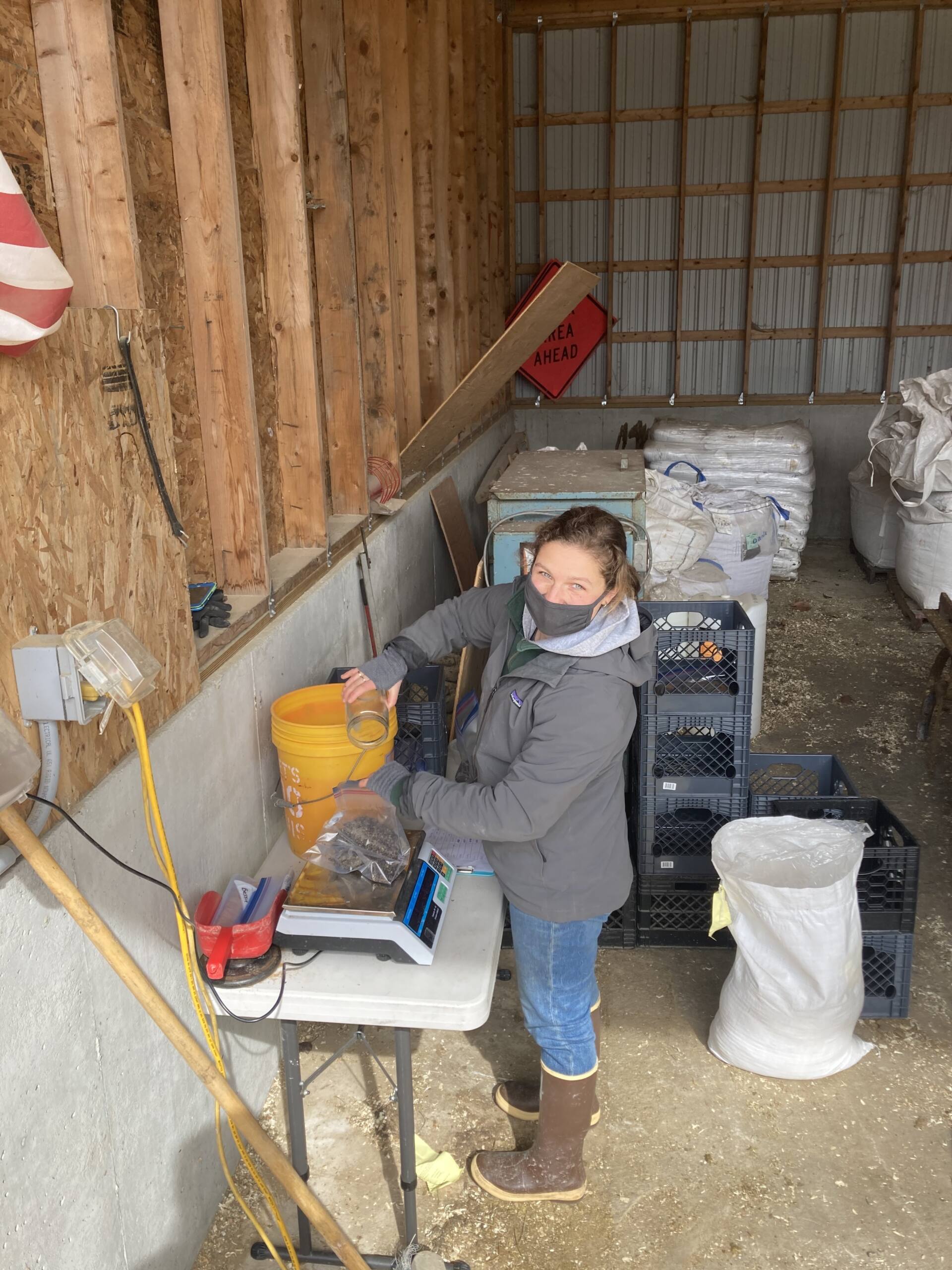Earlier this year, our cows here at Wolfe’s Neck Center were part of a research initiative to fight climate change. Half of our milking herd were given a local seaweed variety in their diet to measure the impacts of that local seaweed on the amount of methane the cow produces. Wolfe’s Neck Center and project partners will be continuing this work over the next 5 years!
We had our project launch for our Coast-Cow-Consumer Project (C3) in late October. With support from the Shelby Cullom Davis Charitable Fund, the USDA Agriculture and Food Research Initiative and the Organic Research and Extension Initiative, this project will research and develop a seaweed additive for cattle feed to reduce methane emissions from cows.
Bigelow Laboratory is leading the project with a focus on the seaweed varieties and compounds that could contribute to methane suppression. The University of Vermont is testing the impacts of seaweed in mock cow rumens. These fermentation chambers mimic the impact of seaweed on a real cow rumen! University of New Hampshire, William H. Miner Agricultural Research Institute, and Wolfe’s Neck Center will be trialing the seaweed supplements on our dairy herds. We will assess the impact on methane emitted through burps, milk production, milk quality, manure and soil health. Partners at Colby College, Syracuse University and the University of Vermont are conducting economic analyses on the seaweed and milk supply chain. Clarkson University is conducting a full greenhouse gas life cycle assessment to ensure that the seaweed additives suppress more methane than produced in growing, processing and shipping.
